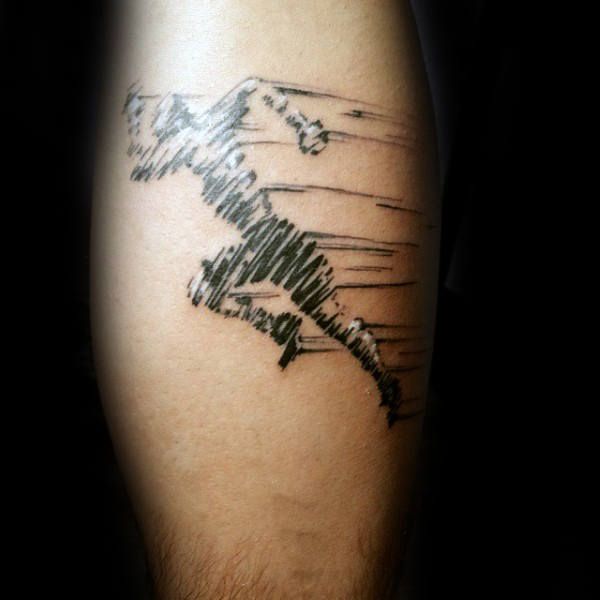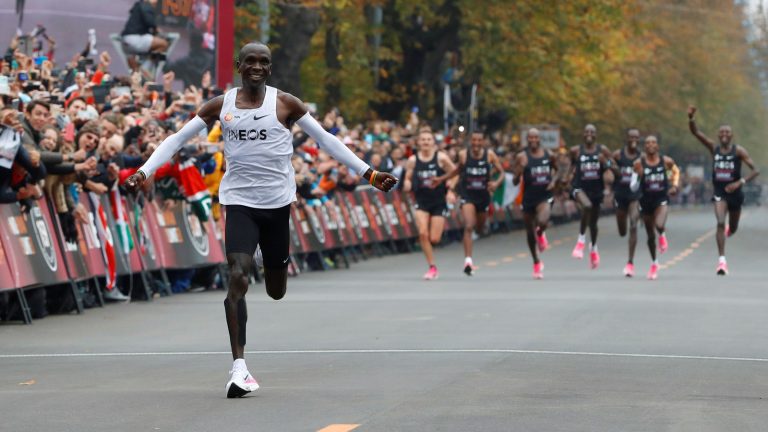How To Manage Hunger During Marathon Training?
To manage hunger during marathon training, eat balanced meals with complex carbs and protein. Stay hydrated and eat small snacks as needed.
Proper nutrition plays a crucial role in successful marathon training by fueling your body with the necessary energy and nutrients. Maintaining balanced meals with complex carbohydrates, lean proteins, and healthy fats can help regulate hunger levels and provide sustained energy for training sessions.
Adequate hydration is also key in managing hunger, as thirst can often be mistaken for hunger. Incorporating small, nutrient-dense snacks throughout the day can help curb cravings and keep hunger at bay. By focusing on quality nutrition and listening to your body’s cues, you can effectively manage hunger during marathon training.

Credit: www.runtothefinish.com
Importance Of Managing Hunger
Hunger management is a crucial aspect of marathon training. It plays a significant role in ensuring that you stay energized, focused, and able to perform at your best during your training sessions. Recognizing the impact of hunger on marathon training and understanding the role of nutrition in marathon performance are essential to optimizing your training and achieving your goals.
Recognizing The Impact Of Hunger On Marathon Training
Unmanaged hunger during marathon training can lead to fatigue, decreased performance, and poor recovery. It is important to recognize the signs of hunger, such as lightheadedness, irritability, and decreased energy levels, and address them promptly to maintain optimal training conditions and avoid setbacks.
Understanding The Role Of Nutrition In Marathon Performance
Nutrition plays a crucial role in fueling your body for the demands of marathon training. Ensuring that you consume a balanced diet rich in carbohydrates, proteins, healthy fats, and essential micronutrients is essential for maintaining energy levels, supporting muscle recovery, and enhancing overall performance.
Preventing Hunger During Training
One key aspect of marathon training is managing hunger to ensure optimal performance. By following strategies to prevent hunger, athletes can sustain their energy levels throughout their workouts. Here are some essential tips to help you manage hunger effectively:
Fueling Properly Before Workouts
Start your day with a balanced meal containing carbohydrates, protein, and healthy fats to fuel your body adequately before a training session.
Eating Balanced Meals And Snacks Throughout The Day
Ensure you consume meals and snacks at regular intervals to keep your energy levels stable and prevent hunger pangs during training.
Choosing The Right Foods
When it comes to managing hunger during marathon training, selecting the right foods is key. Opting for nutrient-dense options that provide sustained energy can help you stay fueled and focused throughout your training. Here are some tips on choosing the right foods:
Opting For Complex Carbohydrates
- Choose whole grains like brown rice, quinoa, and oats for sustained energy.
- Include fruits and vegetables rich in fiber to keep you full longer.
- Opt for sweet potatoes and legumes for a nutrient-packed carbohydrate source.
Incorporating Lean Proteins And Healthy Fats
- Include lean proteins such as chicken, fish, tofu, and beans to support muscle repair.
- Incorporate healthy fats from sources like avocados, nuts, and olive oil for satiety.
- Don’t forget omega-3 fatty acids from fish like salmon and chia seeds for anti-inflammatory properties.

Credit: nypost.com
Hydration Strategies
Discover effective hydration strategies to manage hunger during marathon training. Stay fueled and energized with these expert tips for optimal performance.
Proper hydration is crucial for managing hunger during marathon training. When you’re well-hydrated, you’re less likely to confuse thirst with hunger, helping to control your overall calorie intake. Here are essential hydration strategies to keep you on track with your marathon training.
Monitoring Fluid Intake During Training
During your training, it’s vital to monitor your fluid intake to ensure you’re staying properly hydrated. Carry a water bottle with you and take sips regularly. Keep a log of your fluid intake and adjust as needed based on your body’s needs.
Replenishing Electrolytes And Fluids
Replenishing electrolytes is just as important as hydrating with water. Consider adding a sports drink with electrolytes to your regimen. It’s also essential to refuel with fluids post-training to aid in recovery and maintain hydration levels.
Dealing With Post-training Hunger
Struggling with post-training hunger during marathon preparation? Here’s how to manage it. Focus on rehydrating with water and electrolytes first, then opt for nutrient-dense snacks high in protein and healthy fats to keep you satisfied and fuel your recovery.
Eating Within The Recovery Window
After completing a grueling marathon training session, your body naturally craves nourishment to replenish depleted energy stores. By consuming a well-balanced meal or snack within the recovery window, typically 30 minutes to two hours post-training, you can effectively manage post-training hunger.
During this crucial timeframe, your muscles are most receptive to nutrient absorption, making it essential to provide your body with the necessary fuel it needs to repair and rebuild. Focus on consuming a combination of carbohydrates and protein to replenish glycogen stores, aid in muscle recovery, and reduce muscle soreness.
Examples of post-training meals within the recovery window include:
- A turkey sandwich on whole-grain bread with a side of Greek yogurt and fresh fruit
- A protein smoothie made with whey protein, almond milk, spinach, and frozen berries
- Grilled chicken with brown rice and steamed vegetables
Choosing Nutrient-dense Foods To Refuel
When it comes to combating post-training hunger and maximizing your recovery, it’s crucial to focus on quality over quantity. Opt for nutrient-dense foods to provide your body with the essential vitamins, minerals, and macronutrients it needs to refuel and repair.
Nutrient-dense foods are those that pack a significant amount of nutrients into a smaller serving size, offering more bang for your buck. Examples of nutrient-dense foods include:
| Carbohydrates | Protein | Fats |
|---|---|---|
| Quinoa | Chicken breast | Avocado |
| Sweet potatoes | Salmon | Nuts and seeds |
| Oats | Greek yogurt | Olive oil |
- Leafy greens
- Colorful vegetables
- Whole fruits
By incorporating these nutrient-dense foods into your post-training meals and snacks, you can satisfy your hunger while providing your body with the necessary nutrients it needs for optimal recovery and performance. Remember to hydrate adequately as well, as staying hydrated is vital for both performance and recovery.

Credit: lauranorrisrunning.com
Frequently Asked Questions On How To Manage Hunger During Marathon Training
How Can I Manage Hunger During Marathon Training?
To manage hunger during marathon training, focus on consuming nutrient-dense meals, stay hydrated, and include snacks with healthy fats and proteins.
What Are Some Healthy Snack Options For Marathon Training?
Nourish your body with nutritious snacks such as almonds, Greek yogurt, fruit with nut butter, or a protein smoothie.
Why Is It Important To Manage Hunger During Marathon Training?
Managing hunger during marathon training ensures you have enough energy without overeating, optimizing performance and aiding in weight control.
Conclusion
Managing hunger during marathon training is essential for optimal performance. By focusing on a balanced diet, including carbohydrates, proteins, and healthy fats, you can fuel your body effectively. Additionally, listening to your body’s signals and staying hydrated can help manage hunger and sustain energy levels.
With these strategies in place, you can conquer your marathon training with confidence.





